To Travel, it is obvious that you need money. We all need to save and budget prior to our trip. In my other posts, I have shared tips on how to reduce certain costs in your day-to-day life to save. While we deserve to enjoy every bit of our hard-earned vacation, there are some practical money-saving tips while traveling I thought I would share. Saving money while abroad is easier than you think. This will allow you to travel even longer and save more for your next trip!

Saving Money While Abroad
Use a Credit Card Anytime You Can!
This tip applies while you are home as well as traveling. Anywhere that credit card is accepted: hotel, restaurant, museum, bar, airlines and hotels – CHARGE IT! Not only will you get the best exchange rate compared to using exchanged cash, but you will continue to build points on your card. Double check first that you are using a Credit Card that does not have a foreign transaction fee. I typically book every other trip in full with my Chase Sapphire Credit Card points or by Mileage. I literally charge EVERYTHING I can on credit cards, even 50 cents at the parking meter or any utility bills I can pay it with. It pains me to see people paying in cash when we are out, it’s points you are losing out on!!
Use ATMs instead of Money Exchange
In my experience, pulling money out of the ATM while traveling has provided the best Exchange Rate (compared to exchanging in cash), even taking into account the small fee the ATM may charge. Even if your bank charges a Foreign Transaction Fee of 3-5%, it may be worth it, but do the math first. After your trip, if there are bank charges (in Chase’s Posted Term “FOREIGN EXCHANGE RATE ADJUSTMENT FEE”), call your bank and ask nicely if they will refund the charges (sometimes they will!).
Tip: I highly recommend signing up at Schwab.com for a Charles Schwab debit card which charges 0 ATM fees. It’s free and once you sign up, transfer some money from your bank account to this online account and they will send you a debit card in the mail.
Saving Money on Accommodations
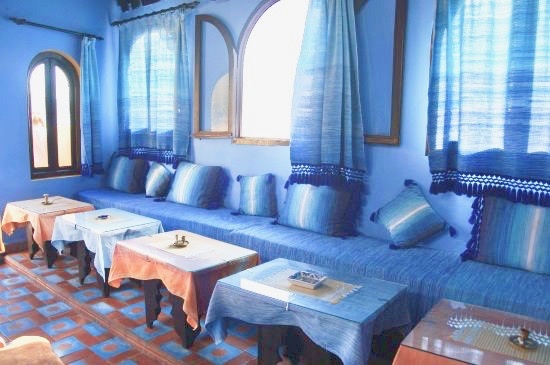
Stay at Airbnbs Instead of Hotels
Personally I have found Airbnbs way more affordable than staying in Hotels. This way, I also have a kitchen and fridge to prepare some of my own food. The Airbnb costs provided up front is typically the whole cost where as with hotels, they add on taxes and resort fees which could be an additional 10-30% mark up from the price per night displayed.
Here is a list of my favorite inexpensive Hostels and Airbnbs around the world.
Get An Apartment Instead of 2 Hotel Rooms
If you are traveling with your family or a group, instead of booking 2 hotel rooms, you will save substantial money by booking an apartment with multiple rooms. I do this especially when traveling with my family. In Taipei, I booked a 2 bedroom, 2 story apartment with a pull out couch in the living room, in a central area when I traveled with my dad and sister. This essentially gave us 3 rooms for the cost of $100 per night total in a clean apartment with 2 bathrooms and kitchen.

Look Out for Hotel Hidden Costs
You may prefer to stay in a Hotel for the full service and experience that an Airbnb wouldn’t provide. That’s totally understandable! Just make sure you review all the costs associated before booking. Along with the cost per night, there are usually additional taxes, resort fee and possibly other fees tied in.
Review Your Hotel Bill!
Just as you would on restaurant bills, always review your hotel bill before checking out. Sometimes the hotels may accidentally (or intentionally) try to tack on unnecessary costs.
Saving Money on Food & Drinks While Traveling Abroad
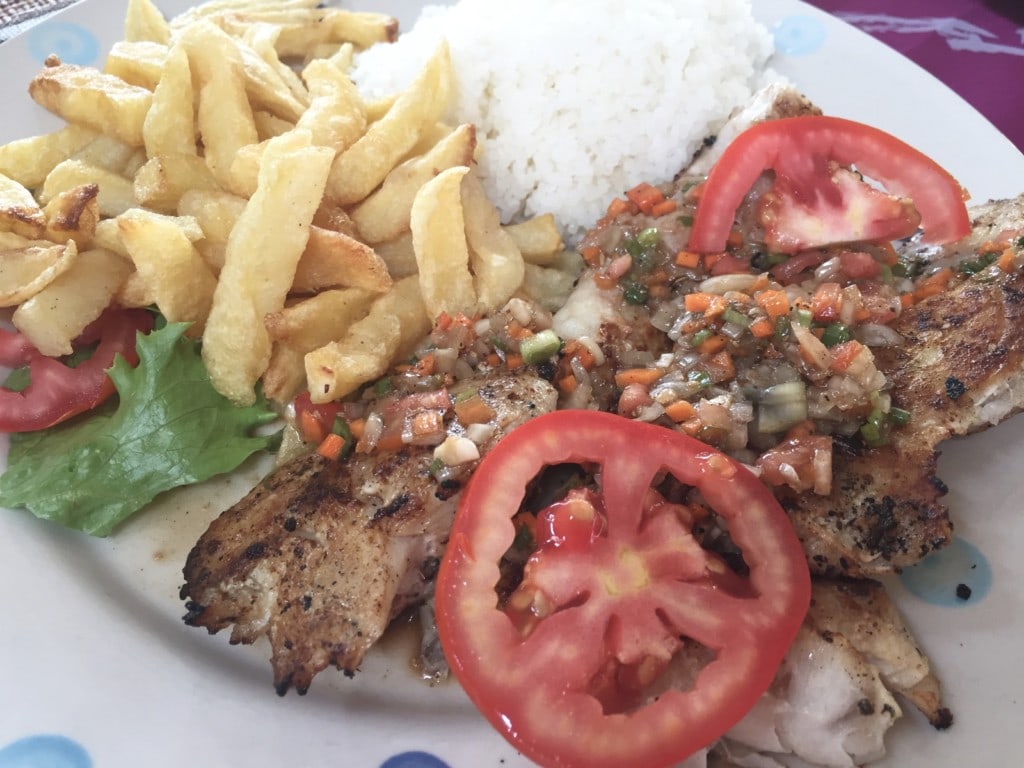
Dine Where the Locals Dine
It may be tempting and easy to dine at restaurants where it’s packed with tourists for obvious comfort reasons. Some feel safer that way, but where’s the adventure when doing that!? For a real cultural experience, eat where more than 50% of the restaurant is filled with locals. The restaurant menu won’t be marked up to astronomical tourist prices and you will likely enjoy a more authentic meal.
For example: When we were in Cuba, I received a list of restaurant recommendations in Havana. The same 6 restaurants were on every American Traveler’s list which were all lovely and beautiful to visit, but they were clearly for tourists with meals costing $15-20 each. While we had a nice experience doing so, our best meals were cooked by our Airbnb hosts at their homes and street food (less than $1).
Ask your host or hotel on where they would actually eat with their family for the best restaurant recommendations.
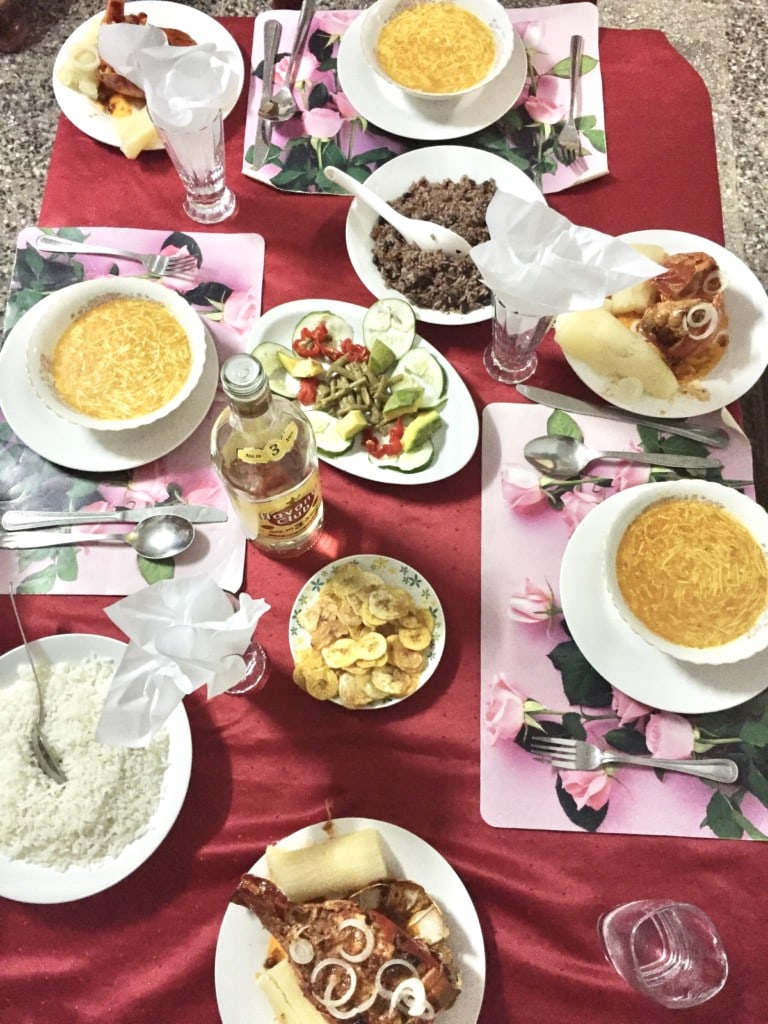
Prepare Your Own Breakfast or One Meal a Day
A huge part of traveling is tasting the variety of food in a different country. But you can always save money by going to the local grocery store to prepare your own breakfast or snacks for the day. This is also a way to stay healthier. For example, some countries have better lunch or dinner options. If you are not a huge fan of their breakfast choices, you can save money by making your own.
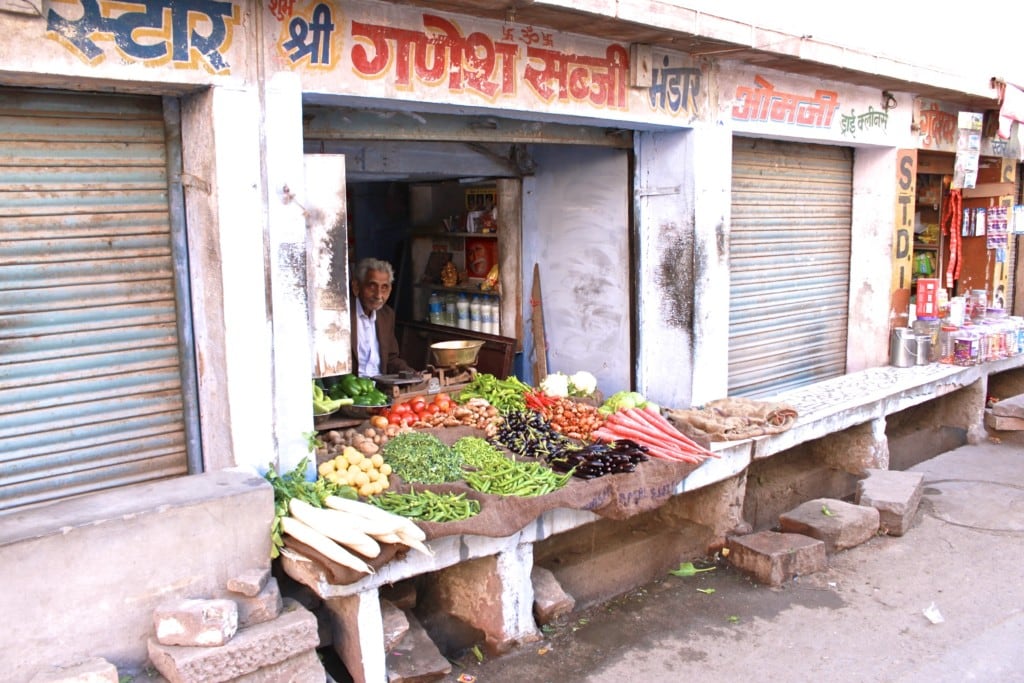
For example: In India, it is common to have Paratha (a type of bread) and yogurt for breakfast. Eating bread in the morning typically makes me feel sluggish so I prefer to eat fruits or eggs. So instead of eating out, I just buy my own off the street or local store.

I also miss Asian flavors while traveling to non-Asian countries, so I usually pack a few bags of Ramen in my luggage. This not only saves money, but it satisfies my Asian comfort food cravings when I need it.
Take 1 Large Water Bottle for the Day
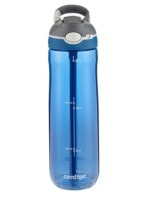 If you are traveling in a country where drinking bottled water is advised over tap or filtered water, I would recommend always having a large water bottle with you at all times. Or if you don’t want to carry a large bottle, buy smaller bottles at the market instead of at restaurants.
If you are traveling in a country where drinking bottled water is advised over tap or filtered water, I would recommend always having a large water bottle with you at all times. Or if you don’t want to carry a large bottle, buy smaller bottles at the market instead of at restaurants.
Unless you are at a fancy restaurant, most places won’t care if you have your own water bottle. Restaurants will mark up the price of water by 3-5 times than at local markets. Or if filtered water is ok, then bring your own refillable water bottle with you at all times. This will also reduce plastic waste.
Buy Alcohol from the Market
It never hurts to pre-drink as you would at home prior to going out. In a city where alcohol is permitted in public spaces? Buy a bottle of wine and head to the park with friends! Basically, it wouldn’t hurt to have your own bottle of alcohol in your bag as long as you aren’t going to a bar where they may search your bag and take it.

Discounted Admission
Research pricing on admission tickets to Museums, Concerts, Plays, Trains, Busses, etc. There may be deals by purchasing online and/or ahead of time.
Student/Senior/Military Card
- If you still have your Student ID (without a date on it), use it! You can save a lot of money this way
- For those under 26 years old, I highly recommend signing up for the STA International Student ID Card which is accepted at many establishments around the world. They also offer discounts on Flights, Hotels, Tours, Transportation and more on their site so be sure to check!
- Senior Discounts are available for those over 55 or 65
- If you ever served in the Military, bring your Military ID!
- Sometimes there are discounts for Teachers and other professions too



Yasss about *not* eating where all the tourists recommend! That tends to scream “bad news,” imho, and where’s that travel sense of adventure? I def bring my own bottle and buy drinks and food at markets, too.
For tourism discounted admission, sometimes (not always) buying a city pass can be a steal—mostly if you planned on visiting lots of the places anyway. But I typically just like to walk around and get lost (but work in museum free days).
Pingback: 12 Savvy Finance Tips So You Can Travel More - Bohemian Vagabond - Jacki Ueng